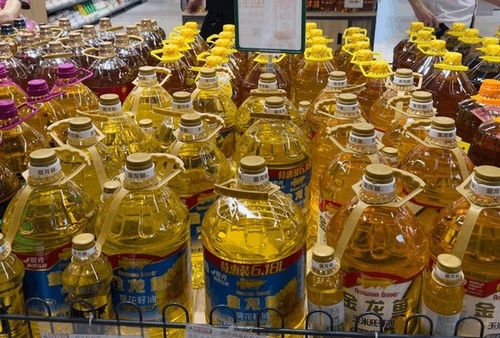Vegetable oil quotes are rising on hopes that China's economic stimulus will boost demand

China's central bank on Tuesday announced that it will take measures to lower borrowing costs, inject more liquidity into the economy, and ease mortgage payments for households.
Governor of the People's Bank of China, Pan Gongsheng, stated that the central bank will soon reduce the amount of cash that banks must hold as reserves—the so-called reserve requirement ratio (RRR)—by 0.5%, which will inject about 1 trillion yuan ($141.7 billion) of "long-term liquidity" into the market.
Pan also announced plans to increase support for the troubled real estate sector, including lowering interest rates on existing mortgage loans.
According to experts, such stimulus measures by the Chinese government are likely to be insufficient to achieve the projected GDP growth of 5% in 2024, after it fell to 5.2% in 2023—the lowest level in the past 20 years.
The prolonged downturn in the real estate market, high youth unemployment (20-30%), and increasing levels of local government debt reaching about $10 trillion will continue to drag China's economy downward.
Following Pan's statement, Chinese stocks showed the strongest growth since February 2022, and vegetable oil prices continued to rise on exchanges in anticipation of increased demand from China.
The most active soybean oil contract on the Dalian Commodity Exchange rose by 1.06% yesterday, while the palm oil contract added 0.58%.
November palm oil futures on the Bursa exchange continued their growth since the beginning of the week by another 1% to 3,988 ringgit per ton or $961/ton (+3.7% for the week), despite India's cancellation of purchases and the further strengthening of the ringgit against the dollar.
Indian oil refiners canceled purchases of 100,000 tons of palm oil for delivery from October to December due to the government's decision to increase import duties, and according to traders, they will further reduce purchases in the near future.
The ringgit strengthened by 1.19% against the US dollar, reaching a nearly three-year high, which reduces the export attractiveness of palm oil compared to other, even more expensive oils.
December soybean oil futures in Chicago rose by 8.8% over the week to $955/ton (+7.2% for the month), supported by hot conditions in Brazil at the start of soybean planting.
Export demand prices for sunflower oil delivered to Ukrainian Black Sea ports are rising to $940-950/ton, while prices for Russian sunflower oil remain at $930-935/ton FOB, but offer prices continue to rise following the increase in sunflower seed prices.


